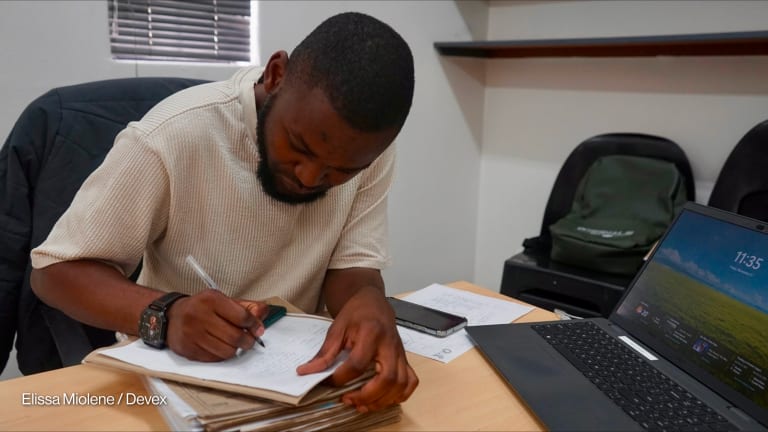In the wake of the earthquakes in Syria and Turkey on Feb. 6, it’s unclear how many health facilities were damaged, but there are grave concerns rebel-held northwest Syria’s public health systems could be on the brink of collapse. The health systems in the country’s northwest have been “pulverized” from the 12 years of conflict, said Dr. Michael Ryan, executive director of the World Health Organization's Health Emergencies Programme, during a press conference on Sunday. This has included physical damage to infrastructure and the exodus of health workers. “A death by 1,000 cuts to the system,” he said, adding that the major concern for health in the aftermath of the earthquakes is in the northwest area. Dr. Richard Brenner, regional emergencies director for WHO, said that while a full assessment has not been conducted in the northwest area, there have been reports of at least 4,500 deaths and 7,500 injuries specifically in that region, with numbers expected to rise. The emergency response has been stunted in opposition-controlled areas because of the ongoing conflict. On Friday, Raed Al Saleh, the head of the Syria Civil Defence, also known as the White Helmets, which is providing emergency response in the northwest, said the area had not received any aid deliveries that were specifically in response to the disaster — only six trucks that were already headed to the region before the earthquake have made deliveries. The northwest area has not had access to the same search and rescue heavy lifting equipment that other parts of Syria and Turkey have had access to, Ryan said. United Nations humanitarian chief Martin Griffiths also acknowledged this failure to deliver international aid in a tweet on Sunday, where he said the populations “rightly feel abandoned.” WHO Director-General Tedros Adhanom Ghebreyesus said during the press briefing on Sunday that the Syrian government had granted blanket approval for U.N. convoys to move across boundaries of the conflict, but WHO is awaiting approval from the rebel-held areas. The International Rescue Committee wrote in a press release that before the disasters a third of hospitals and nearly half of primary health centers in Syria were nonfunctional. Damaged roads and buildings mean that many won’t have the means to access health centers as well, Dr. Jasem, health coordinator for IRC wrote, adding that many people could get sick when left out in freezing temperatures. The emergency response teams said critical medical supplies are running low in northwest Syria, such as serums, gauze bandages, painkillers, medical plasters, and blood bags. There is also a need for burial bags and fuel to power generators. At least 20 hospitals in the area are in search of blood and at least two hospitals in Idlib governorate are reportedly out of service. Brenner said that for those left homeless, taking shelter in places such as mosques and schools, there are concerns about crowding and poor sanitation. This increases the risk of the spread of infectious diseases, and the country had preexisting outbreaks of cholera and measles.
In the wake of the earthquakes in Syria and Turkey on Feb. 6, it’s unclear how many health facilities were damaged, but there are grave concerns rebel-held northwest Syria’s public health systems could be on the brink of collapse.
The health systems in the country’s northwest have been “pulverized” from the 12 years of conflict, said Dr. Michael Ryan, executive director of the World Health Organization's Health Emergencies Programme, during a press conference on Sunday. This has included physical damage to infrastructure and the exodus of health workers.
“A death by 1,000 cuts to the system,” he said, adding that the major concern for health in the aftermath of the earthquakes is in the northwest area.
Printing articles to share with others is a breach of our terms and conditions and copyright policy. Please use the sharing options on the left side of the article. Devex Pro members may share up to 10 articles per month using the Pro share tool ( ).
Search for articles
Most Read
- 1
- 2
- 3
- 4
- 5








